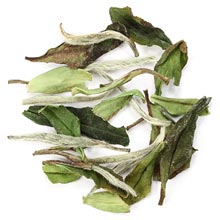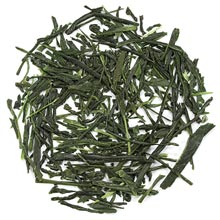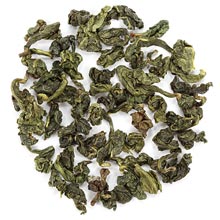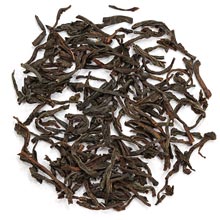Brewing Guide for the Perfect Cup of Tea
by Divya Patel
January 21, 2020

Have you ever prepared a cup of tea, excited to take the first sip, and recoiled after tasting a very bitter liquid? The reason behind this unfortunate experience may have to do with the temperature of the water and how long you steep the tea.
Say you just started your journey into the tea world- you're excited to start a hobby that has so many different aspects and seems pretty easy. You just boil some water, throw the water and tea in a cup, and wait until you remember you have to take the tea leaves out, right? Not quite, brewing tea is a very nuanced process. Different types of tea require different water temperatures and brew times. This is because although all tea starts off from the same plant, the leaves are processed in different ways.
The orthodox method for tea processing has five different stages: picking, withering, rolling, oxidation, and drying. Picking is where the tea leaves are harvested from the plant. Withering is when the leaves are laid out to wilt so that they become more pliable for the later stages of processing. Rolling is when the leaves are twisted and rolled to get the excess liquid out. This creates micro-tears in the leaves and begins the oxidation process. During oxidation, the leaves are left out so that oxygen can come in contact with the enzymes in the leaves and change the chemical composition.
This step has the most impact on flavor. The last step is drying, where the leaves are quickly dried to get rid of any leftover liquid and to stop the oxidation process. There are many different ways leaves can be processed at each step; this how so many different types of flavors are possible and why they need different brewing temperatures and times.

White Tea
White tea is picked before the leaves have fully opened and is processed by quickly drying. This allows for the white tea to be the least oxidized out of all tea types, resulting in a very light flavor and color. It also has the least amount of caffeine and the most antioxidants- a great option for those who are looking for a healthy drink but are sensitive to caffeine.
White tea should be brewed in water that is 175 degrees for 2-3 minutes.
Examples: Silver Needle, White Peony

Green Tea
Green tea is processed by being quickly heated and dried after harvest. This prevents too much oxidation from happening, giving green tea a lighter, vegetal flavor compared to black. Green tea is also filled with antioxidants and is praised for its health benefits- from fighting cancer to lowering cholesterol.
Green tea should be brewed in water that is 175 degrees for 2-3 minutes.
Examples: Sencha Premier, Gunpowder

Oolong
Oolong is oxidized more than green tea and less than black tea. The oxidation levels of oolong widely vary, allowing for it to have many different flavor profiles. A trademark feature of oolong is the shape: it is rolled into balls or strands.
Oolong should be brewed at 195 degrees for 3 minutes.
Examples: Milk Oolong, Jade Oolong

Black Tea
Black tea is fully oxidized before it is heated and dried during processing. This is what gives black tea its signature full-bodied, strong flavor. Black tea has many benefits and a good amount of caffeine, which makes it a good choice for those who are trying to switch to tea from coffee.
Black tea should be brewed at 212 degrees for 3-5 minutes.
Examples: Darjeeling, Ceylon Sonata, Assam Melody

Herbal
Herbal teas don't contain any leaves from the tea plant but are made up of varying spices, herbs, fruits, or flowers.
Herbal tea should be brewed at 212 degrees for up to 7 minutes depending on how strong you want the flavor.
Examples: Spearmint, Chamomile, Berry Blast
An easy way to make sure your water is heated to the correct temperature is to use a kettle that has settings based on the type of tea. If you already have a kettle, you can also use a thermometer to take the temperature of the water before you brew. Hopefully, this guide will help you with your future tea brewing endeavors and avoid bitter, over-steeped cups of tea!